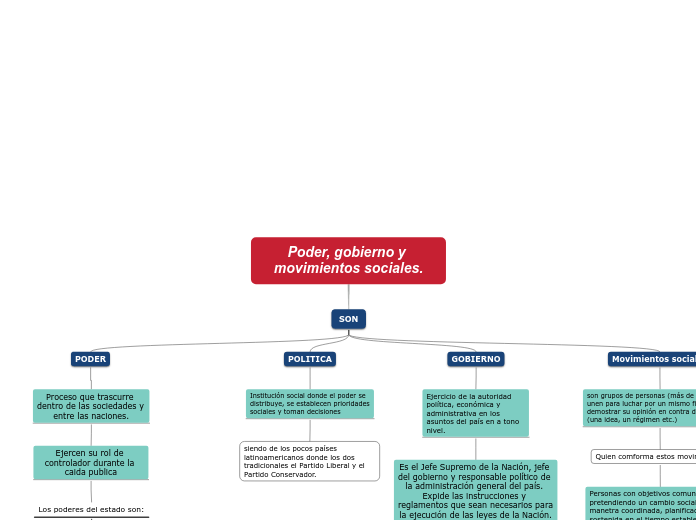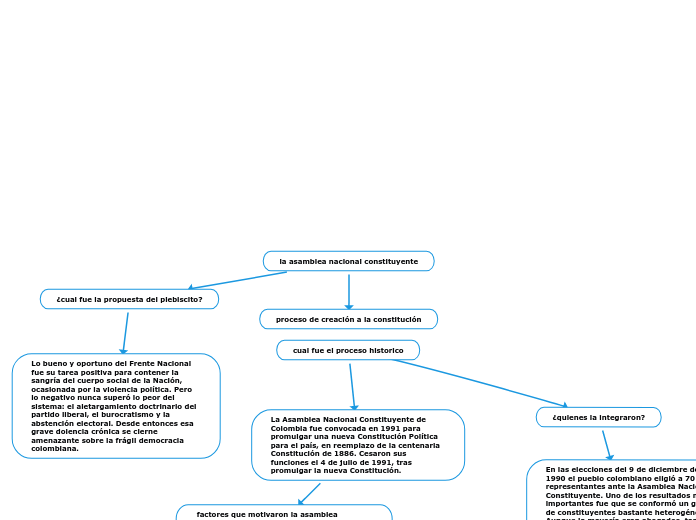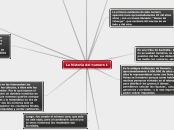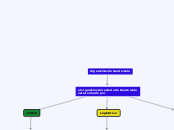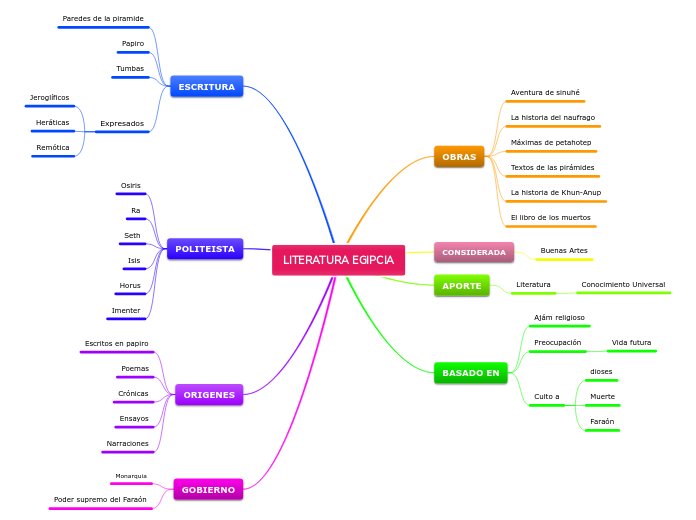Poder, gobierno y movimientos sociales.
Type in the name of the multiple-perspectives text.
Example: Bridge to Terabithia by Katherine Paterson
SON
Identify an important issue from the text that is being presented from different angles. Type it in.
Example: Jesse's drawing talent.
Movimientos sociales
Whose character does the third point of view belong to?
Type in his/her name.
Example: Mr. Aarons, Jesse's father.
son grupos de personas (más de 50) que se unen para luchar por un mismo fin y para demostrar su opinión en contra de “algo” (una idea, un régimen etc.)
What does the character think, say or do that suggests their perspective on the issue?
Type in a quote and try to maintain the citation format.
Example: 'He would like to show his drawings to his dad, but he didn't dare. (...) He'd thought his dad would be pleased. He wasn't. What are they teaching in that damn school? he had asked.' (Paterson, 2.8)
Quien comforma estos movimientos.
Personas con objetivos comunes pretendiendo un cambio social, de manetra coordinada, planificada y sostenida en el tiempo establecido.
Etapas de los movimientos sociales.
Emergencia, Socialización, burocratización, decline.
GOBIERNO
Ejercicio de la autoridad política, económica y administrativa en los asuntos del país en a tono nivel.
Es el Jefe Supremo de la Nación, jefe del gobierno y responsable político de la administración general del país. Expide las instrucciones y reglamentos que sean necesarios para la ejecución de las leyes de la Nación.
Gobierno y su economia.
5 funciones del estado sobre la economía
El Manejo del Gasto Público. La primera función importante del Estado, es el manejo del gasto público.
La regulación de la actividad Económica.
La financiación del Gasto Nacional.
El manejo de los recaudos nacionales.
La determinación de las políticas impositivas.
POLITICA
Decide on the second point of view
Name the character (it can either be the main character or one of the supporting characters) whose point of view you are presenting.
Example: Miss Edmunds, Jesse's music teacher.
Institución social donde el poder se distribuye, se establecen prioridades sociales y toman decisiones
Type in a quote that points out the character's position about the issue.
Try to follow a citation format: author's name, chapter, and page.
Example: 'She said he was unusually talented, and she hoped he wouldn't let anything discourage him.' (Paterson, 2. 8)
siendo de los pocos países latinoamericanos donde los dos tradicionales el Partido Liberal y el Partido Conservador.
How is the viewpoint introduced in the story?
Choose an answer:
First person point of viewSecond person point of viewThird person point of viewOmniscient point of view
PODER
Decide on the first point of view you are going to present.
Type in the name of the character (it can either be the main character or one of the supporting characters) whose point of view belongs to.
Example: Jesse Oliver Aarons, Jr., the main character of the novel, a fifth-grader living in a rural Southern area.
Proceso que trascurre dentro de las sociedades y entre las naciones.
Type in a relevant quote that highlights the character's point of view towards
SON.
Try following a citation format: author's name, chapter, and page.
Example: 'Jesse drew the way some people drank whiskey. (...) Lord, he loved to draw. (...) When he was in first grade, he told his father that he wanted to be an artist when he grew up.' (Paterson, 2. 7)
Ejercen su rol de controlador durante la caida publica
What type of narration introduces the viewpoint?
Choose an answer:
First person point of view - using the personal pronouns 'I' or 'we'Second person point of view - using the personal pronoun 'you'Third person point of view - using the third-person pronouns 'he', 'she' and 'they'Omniscient point of view - an all-seeing observer tells the story
Los poderes del estado son:
Judicial.
Corte suprema de la justica, encargada de solucionar los conflictos y controversias entre ciudadanos y entre éstos y el Estado y decidir cuestiones jurídicas controvertidas mediante pronunciamientos que adquieren fuerza de verdad definitiva.
Legislativo
Todo el poder legislativo esta en manos del Congreso, siendo la unica parte del Gobierno que puede promulgar leyes nuevas y las leyes existentes.
Ejecutivo.
Ejecutar leyes aprobadas por el congreso y dirigir política y económicamente la vida del país.
